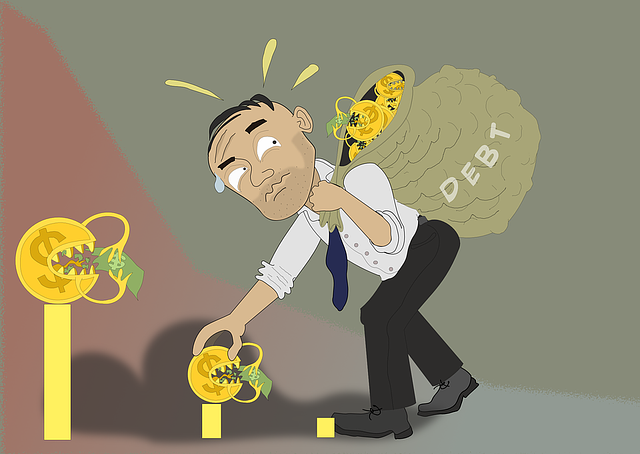
Image Source: pexels.com
Making eye contact seems simple enough, but this subtle aspect of nonverbal communication carries tremendous weight in how others perceive us. Whether you’re interviewing for a job, negotiating a deal, or simply chatting with colleagues, your eye contact patterns could be sending unintended messages. Many professionals unknowingly sabotage their relationships and opportunities through poor eye contact habits. Understanding the psychology behind eye contact can transform your professional interactions and help you project the confidence and trustworthiness you intend to convey.
1. The Stare-Down: When Too Much Eye Contact Becomes Intimidating
Maintaining strong eye contact shows confidence and engagement, but there’s a fine line between connection and intimidation. Holding someone’s gaze without natural breaks can trigger their fight-or-flight response. Research from the University of London found that sustained eye contact lasting more than 3.3 seconds without breaks creates discomfort in most Western cultures.
To avoid appearing aggressive or domineering, practice the 50/70 rule: maintain eye contact for about 50% of the time while speaking and 70% while listening. This balance demonstrates attentiveness without crossing into uncomfortable territory.
Remember to incorporate occasional breaks in your gaze—looking at your notes, gesturing to emphasize a point, or briefly glancing away—to create a more natural rhythm in conversation.
2. The Shifty Glance: How Avoidant Eye Contact Undermines Trust
Constantly looking away, focusing on your phone, or scanning the room while someone speaks to you sends a powerful negative message. This eye contact pattern can make you appear dishonest, disinterested, or lacking confidence—even when none of these are true.
A Journal of Nonverbal Behavior study found that people who make less eye contact are consistently rated as less trustworthy and less competent, regardless of their actual abilities or intentions.
To improve, practice conscious eye contact during conversations. If direct eye contact feels uncomfortable, try focusing on the speaker’s forehead or the bridge of their nose—they won’t notice the difference, but you’ll appear more engaged. For virtual meetings, look directly at your camera occasionally rather than always at the screen to create the impression of direct eye contact.
3. The Cultural Disconnect: When Eye Contact Norms Clash
Eye contact expectations vary dramatically across cultures, creating potential for misunderstanding in our global business environment. In many Western cultures, direct eye contact signals honesty and attention. However, in numerous Asian, Middle Eastern, and Indigenous cultures, prolonged eye contact with superiors or elders may be considered disrespectful or challenging.
For example, in Japan, focusing on the speaker’s neck area rather than making direct eye contact is often considered more appropriate, especially in formal settings. Meanwhile, in some Middle Eastern contexts, same-gender eye contact may be held longer than what Westerners find comfortable, while cross-gender eye contact might be more limited.
When working across cultures, research specific eye contact norms before important meetings. Adapt your approach based on cultural context while remaining authentic to build stronger cross-cultural relationships.
4. The Wandering Eye: When Your Gaze Signals Distraction
In our device-dominated world, maintaining focused eye contact has become increasingly challenging. Glancing at notifications, looking around the room, or checking the time signals to others that something else has captured your attention—and that they’re not a priority.
This pattern is particularly damaging in professional settings. A Harvard Business Review survey revealed that 91% of employees feel disrespected when colleagues check their phones during meetings.
To combat this, practice device discipline by keeping phones face-down or away during important conversations. For longer meetings, communicate in advance if you must check messages at specific intervals. Train yourself to be fully present by mentally noting when your attention drifts and gently bringing your focus back to the speaker.
5. The Power Play: Using Eye Contact to Establish Status
Eye contact serves as a powerful tool in establishing and maintaining status hierarchies. Those who hold eye contact during disagreements or challenging conversations are typically perceived as more dominant and confident.
However, this can backfire if your eye contact patterns appear to challenge authority inappropriately or if you fail to adjust your gaze based on the situation. For instance, maintaining aggressive eye contact with a superior during criticism might be interpreted as insubordination rather than confidence.
Adapt your eye contact based on the context and your goals. When you need to project authority, maintain steady eye contact while speaking. When building rapport is the priority, soften your gaze and incorporate more natural breaks.
The Eyes Have It: Small Adjustments With Big Impact
The good news about eye contact is that minor, conscious adjustments can dramatically improve how others perceive you. Unlike changing your personality or acquiring new skills, modifying your eye contact patterns can be practiced daily with immediate results. Start by becoming aware of your current habits, perhaps by recording yourself during video calls or asking trusted colleagues for feedback.
Remember that authentic connection—not manipulation—should be your goal. Effective eye contact isn’t about controlling others but ensuring your nonverbal signals align with your intentions and words.
Have you ever realized someone misinterpreted your intentions based on your eye contact? What adjustments have you made to your nonverbal communication that improved your professional relationships?
Read More
How Your Body Language Could Be Pushing People Away Without You Knowing
8 Things People Judge You On Within Seconds of Meeting You

Travis Campbell is a digital marketer/developer with over 10 years of experience and a writer for over 6 years. He holds a degree in E-commerce and likes to share life advice he’s learned over the years. Travis loves spending time on the golf course or at the gym when he’s not working.



















































